The ring, like the world that housed it, was stuffed to capability. The ultimate bell had rung and dozens of individuals climbed by the ropes for the rituals marking the top of one among 1992’s greatest fights, Chavez vs Camacho. The removing of the fighters’ gloves, the wiping of sweat from drained faces and heaving torsos, the glad-handing between promoters and their firm males on one aspect, and sanctioning honchos and regulators on the opposite. In fact these have been simply the ultimate steps earlier than probably the most welcome ritual of all: divvying up the mountain of money generated by the large occasion. Virtually everybody inside that ring seemed ahead to a test; nearly everybody outdoors of it had helped make it a juicy one.
As for the ritual of compiling and studying the scorecards, all drama related to that had vanished a while in the past. A minimum of way back to spherical 9, when Camacho’s legs abandoned him for good and compelled him to face toe-to-toe with among the best inside fighters of all time. Or perhaps way back to spherical three, when Camacho switched from circling the ring to clinching as his essential defensive tactic. Or perhaps it went again a lot additional, to weeks earlier than the opening bell, when punters labelled Chavez, on the time among the best, pound-for-pound, on the earth, a strong eleven-to-two favourite over the Puerto Rican. In brief, the result was now a foregone conclusion and a shock to nobody.
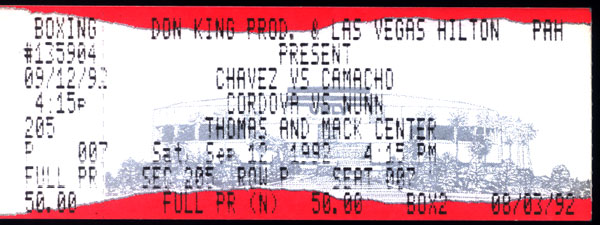
Although this had not at all times been the case. In any case, Hector and Julio have been nearly the identical age, each among the many sport’s elite, and for years a Chavez vs Camacho duel appeared like an inevitability, a can’t-miss proposition. That stated, in so many respects, “El Leon de Culiacan” and “Macho Camacho” stood at reverse ends of the boxing spectrum, pure born rivals and antagonists.
In any case, not solely did they hail from nations locked in one of many hottest nation-based rivalries in all of prizefighting, however in addition they represented their respective boxing colleges to perfection. Chavez, together with his physique punching, cast-iron chin, and indomitable strain, turned the usual by which all different Aztec fighters have been measured, whereas Camacho possessed an excellent beginner pedigree, validated by three New York Golden Gloves titles. His ring type within the professional ranks borrowed a lot from that background, relying because it did on his spectacular hand pace and nimble toes. To prime it off, Camacho’s southpaw stance added one other layer of complexity to his fashionable, stick-and-move method.
The variations in ring kinds complemented these between their personalities solely too properly. Julio was perceived as a no-nonsense champion and latter-day nice with unassailable dedication to the game. A busy calendar–1992 alone noticed him step into the ring six occasions–saved him away from temptation and at all times in prime form. Outdoors the ring, his everyman look and relaxed demeanor made it straightforward for hundreds of thousands of his countrymen to reward his ring achievements with unquestioned adulation.
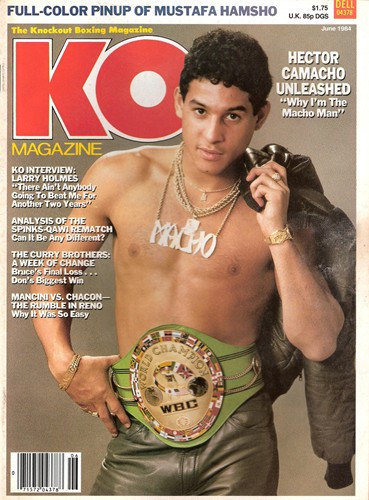
As for Camacho, one can be forgiven for pondering he turned a three-time world champion to fulfill some deep, interior want to morph right into a rock star. Indulging his love for quick automobiles and trend, the Boricua flaunted his flashy way of life to an viewers break up into two well-defined camps: those that beloved him and those that hated him. Historian Arne Ok. Lang thought Camacho “one of many nice characters of boxing: a Puerto Rican raised in New York Metropolis, who dressed outlandishly, preened just like the previous wrestler Attractive George, trash-talked incessantly, and reveled in his well-earned status as a celebration animal. Pundits had a discipline day when he was ticketed for dashing in his Ferrari whereas his girlfriend was astride him.”
In baptizing Chavez vs Camacho as Final Glory: The Combat for it All, Don King crystallized the sense that extra was on the road than simply the Mexican’s WBC tremendous light-weight title. At stake have been the reputations of not solely the 2 pugilists, but in addition of their respective boxing-crazed homelands, breeding grounds for a few of the most interesting fighters of all time. Chavez vs Camacho–a contest brewing for so long as six years by some accounts–featured two seasoned champions battling for honor and pleasure, as all of the posters, commercials, interviews and press conferences saved telling everybody.
It was a critical and punctiliously stage-managed hype effort and Camacho performed to perfection the function of the unrepentant antagonist, mocking Chavez for not talking English and threatening to “kick his ass again to Mexico,” even mooning the Mexican followers who booed him at his tune-up bout in Las Vegas in opposition to Eddie VanKirk. In flip, the suitably indignant Chavez promised to punish Camacho and shut him up for good. He would gladly do it on behalf of all Mexicans, he stated, earlier than joking that he wouldn’t be allowed again into his native nation if he failed in that mission.

However as seasoned battle followers know, the hype machine is the final place to search for the reality relating to a boxing match. What Final Glory really represented was an extended sought apotheosis for Chavez, slightly than a excessive stakes battle with an unsure final result. To know why, one should think about the lengthy and winding street to Chavez vs Camacho. Initially scheduled to happen in April of 1991, that first try at Final Glory fell by the wayside when Camacho discovered himself trapped in a rivalry with Greg Haugen, supposedly a straightforward tune-up for “Macho.” However Haugen out-worked the Puerto Rican to take a break up choice and hand Hector his first profession defeat. With a view to lastly safe that huge Chavez payday, Camacho needed to safe the revenge win within the rematch, which he did simply three months later.
However properly earlier than that massive setback with Haugen, numerous roadblocks had saved getting in the way in which of a Chavez vs Camacho showdown. Two years earlier than, in a press convention in 1989 to advertise a bout in opposition to a returning Ray Mancini, Camacho said he couldn’t wait to maneuver as much as 147 so he may battle Chavez “when he’s a fats welterweight. I want a giant payday to have a giant checking account once more.” However, mockingly, it was Camacho who saved delaying the battle, partially by lengthy spells of inactivity. Hector excused his waywardness by citing, in a distinctly Macho tone, a necessity for respite from such a demanding occupation: “It’s like having a spouse: you wish to cheat after some time.”
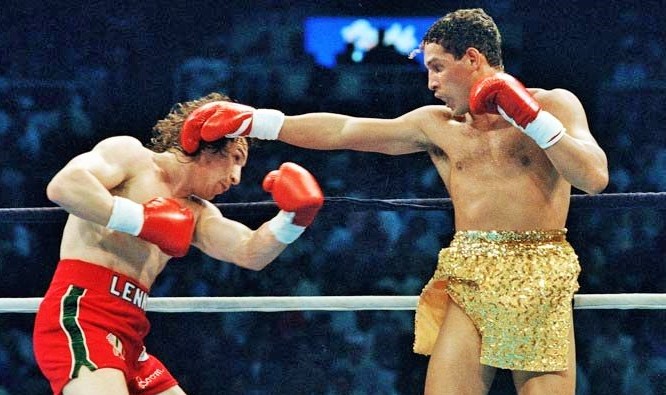
And when it wasn’t sabbaticals and tune ups maintaining Camacho from a date together with his Mexican rival, his reckless way of life picked up the slack. Following his win over Mancini, Hector flipped his personalized Jeep on a freeway exit in Florida and the ensuing accidents to his head, legs and arms compelled him to place his profession on maintain. However following the accident it was onerous to evaluate whether or not Camacho was reflective or boastful: “Have a look at Salvador Sanchez,” he stated. “He solely wanted one accident to get killed. You know the way many automobiles I crashed already? 9.”
For his or her half, Chavez and his camp, circa 1992, have been targeted on a single quantity: 100. A victory over Camacho would depart the Mexican, who had but to style his first defeat, eighteen wins in need of that unimaginable mark. If nothing else, the Mexican’s undefeated streak–padded as it could have been with stay-busy opponents and the occasional fortunate break–confirmed Julio’s dedication to his craft and the single-mindedness of his pursuit.
However that pursuit was not nearly profitable and glory and nationwide pleasure. It’s value remembering that Chavez, by his personal account, got here near quitting prizefighting for good after simply his first professional match again in 1980. “I left the ring that evening pondering it was for the final time,” he had recalled. “For one factor, I didn’t receives a commission.”
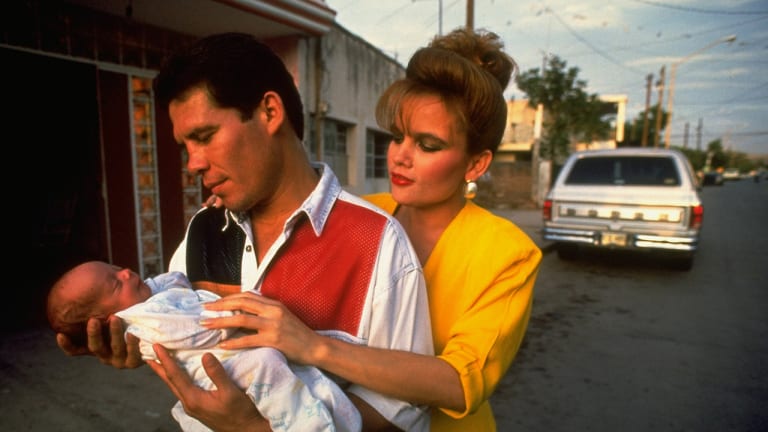
For Chavez, the should be paid was one borne out of determined poverty, and one which had by no means died away. As a baby he lived in an deserted railroad automobile together with his mother and father and ten siblings, promoting newspapers and washing automobiles to contribute to his household’s funds. In an try to depart the dual specters of want and need behind, he started punching for pay on the age of eighteen. He crushed the doubts after his debut by stepping again into the ring a mere 4 weeks later, by no means trying again.
Quick ahead a decade and whereas Chavez may boast wins over such champions as Edwin Rosario, Meldrick Taylor, Jose Luis Ramirez, and Roger Mayweather, plus a checking account fats with zeroes, the one factor that hadn’t modified was the necessity to receives a commission. Having gained titles in three weight divisions, and with the potential 100-0 report a subject of fixed hypothesis within the boxing world, the undefeated champion believed his paychecks had didn’t hold tempo together with his rising report and status.
Mexican journalist Francisco Ponce in his tell-all Adios a la Gloria claims JCC and Don King had been locking horns on the topic as early as March of 1990, within the aftermath of Julio’s notorious victory over Meldrick Taylor. On the time, Chavez was livid at King for having retained over half 1,000,000 {dollars} from Julio’s $1.4 million purse–for tax causes, you see–whereas the promoter had netted over $8 million for himself. Ever since, regardless of nonetheless being underneath contract to King, Chavez had been buying round for a brand new promoter, flirting with on line casino tycoon Steve Wynn, and even reaching out to Don King’s sworn nemesis, Bob Arum.
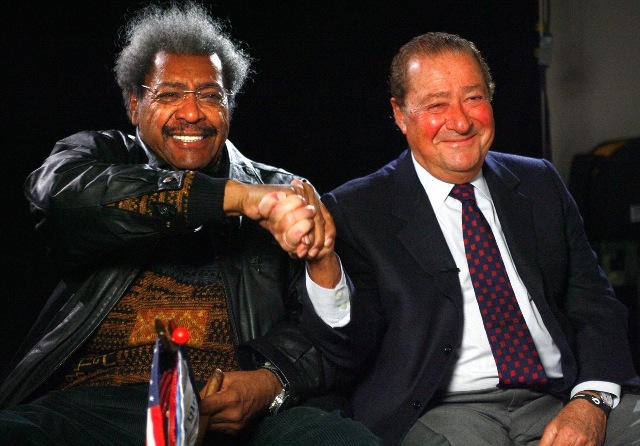
Regardless of Camacho constantly capturing himself within the foot when it got here to a battle with Chavez, JCC knew {that a} assembly with the favored Puerto Rican meant a possible career-high payday. “Thomas Hearns, Sugar Ray Leonard and Mike Tyson have made hundreds of thousands,” Ponce quotes Julio as saying. “Why shouldn’t I make the identical once I can fill stadiums too? ‘Macho’ and I might fill a soccer stadium with out Don King or any of the sanctioning organizations, together with the WBC. I put my life on the road each time I step into the ring. If I’m able to making ten million, why ought to I settle for solely 4?”
Thus, Chavez spent a lot of the primary half of 1991 enjoying Don King in opposition to Bob Arum, going so far as signing a contract with High Rank solely to return to King after securing a rise in his assured purses. Astutely, he additionally demanded that King foot the invoice for any authorized charges on account of High Rank for his maneuvering. “It was all a part of my technique to indicate King what he was lacking out on,” a gloating Chavez confided to the press. “I simply needed to present him a scare. Like we are saying in Mexico: you don’t know what you’ve got till it’s gone.” That King–together with his skill to odor a buck from miles away–yielded to Julio’s calls for, licensed the Mexican’s standing as one of many greatest points of interest in boxing. Contemplating the result and the extent of opposition, his conquer Don King was as spectacular as any he ever earned within the ring.
Having salvaged the connection with Chavez, King now launched into a two-pronged mission: getting his fighter as shut as doable to that hundred-win mark, and to make as a lot cash as doable whereas doing it. The tactic to realize the primary objective concerned maintaining Chavez within the ring, even in opposition to subpar opposition, and touring to venues of all sizes in Mexico and america. Attaining the second objective concerned reserving the type of extravaganzas reserved just for boxing’s crossover stars, the sort that offered out arenas and motels for weeks prematurely and captured the creativeness of anybody with even a passing curiosity in boxing.
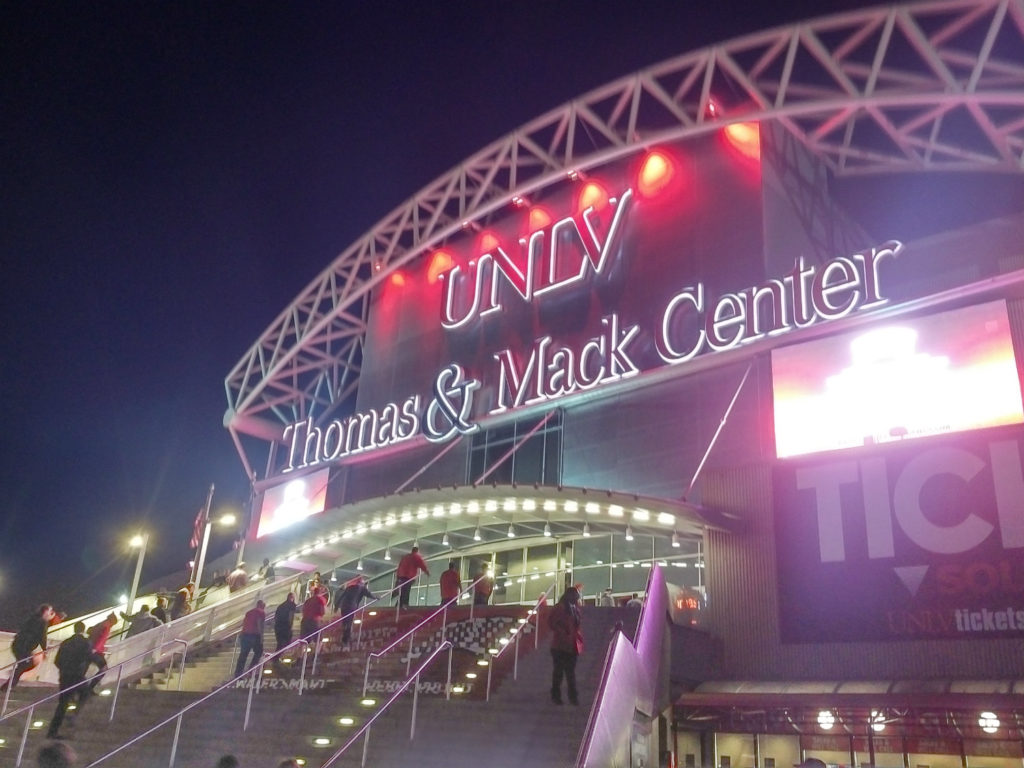
Whereas the contrasts in combating kinds and personalities went a great distance in hyping Chavez vs Camacho, what turned it into a real can’t-miss occasion was a promotional stroke of genius on the a part of King. To provide you with it, the promoter capitalized on the altering financial landscapes in each Nevada and Mexico within the early Nineties. In Vegas, the rise of mega-resorts–an period which dawned with the opening of the Mirage Resort and On line casino in 1989–pressured on line casino executives, greater than ever, to stage occasions that pulled hundreds of punters into city, serving to them replenish their lodge rooms and eating places and, most significantly, hold their on line casino flooring buzzing.
Fortuitously sufficient, this coincided with the rise of a burgeoning Mexican center class, lifted out of poverty by reforms enacted by president Carlos Salinas–coincidentally, a pal of Julio Cesar Chavez. All of the sudden, hundreds of Mexicans with money to spare discovered themselves a flight away from the hedonistic oasis of Vegas and Don King was decided to present them a compelling cause to ebook a visit to the scorching Nevada desert.
King’s brainstorm was to stage a Julio Cesar Chavez battle in Vegas on Mexican Independence weekend, and it was September 14, 1991 that marked the start of a practice that continues to at the present time. Eight thousand paying followers stuffed a makeshift parking zone stadium at The Mirage to see Chavez defeat Lonnie Smith by lopsided choice, offering proof of idea for King’s thought. One yr later it was time to up the ante. For Dia de la Independencia of 1992, it was Julio Cesar Chavez vs Hector Camacho at The Thomas and Mack Heart with a capability of twenty thousand. The consequence was a smashing success: over 150,000 battle freaks and sports activities followers flooded Vegas for Chavez vs Camacho. It was simply one of many greatest fights of the yr.
–Rafael Garcia
Click on right here to learn half II of the story of Chavez vs Camacho.
















